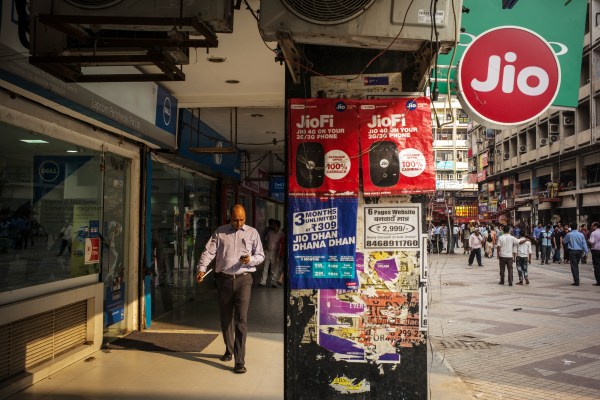The Download: unpacking OpenAI Q* hype, and X’s financial woes
This is today’s edition of The Download, our weekday newsletter that provides a daily dose of what’s going on in the world of technology.
Unpacking the hype around OpenAI’s rumored new Q* model
Ever since last week’s dramatic events at OpenAI, the rumor mill has been in overdrive about why the company’s board tried to oust CEO Sam Altman.
While we still don’t know all the details, there have been reports that researchers at OpenAI had made a “breakthrough” in AI that alarmed staff members. The claim is that they came up with a new way to make powerful AI systems and had created a new model, called Q* (pronounced Q star), that was able to perform grade-school level math.
Some at OpenAI reportedly believe this could be a breakthrough in the company’s quest to build artificial general intelligence, a much-hyped concept of an AI system that is smarter than humans.
So what’s actually going on? And why is grade-school math such a big deal? Our senior AI reporter Melissa Heikkilä called some experts to find out how big of a deal any such breakthrough would really be. Here’s what they had to say.
This story is from The Algorithm, our weekly newsletter giving you the inside track on all things AI. Sign up to receive it in your inbox every Monday.
The must-reads
I’ve combed the internet to find you today’s most fun/important/scary/fascinating stories about technology.
1 X is hemorrhaging millions in advertising revenue
Internal documents show the company is in an even worse position than previously thought. (NYT $)
+ Misinformation ‘super-spreaders’ on X are reportedly eligible for payouts from its ad revenue sharing program. (The Verge)
+ It’s not just you: tech billionaires really are becoming more unbearable. (The Guardian)
2 The brakes seem to now be off on AI development 
With Sam Altman’s return to OpenAI, the ‘accelerationists’ have come out on top. (WSJ $)
+ Inside the mind of OpenAI’s chief scientist, Ilya Sutskever. (MIT Technology Review)
3 How Norway got heat pumps into two-thirds of its households
Mostly by making it the cheaper choice for people. (The Guardian)
+ Everything you need to know about the wild world of heat pumps. (MIT Technology Review)
4 How your social media feeds shape how you see the Israel-Gaza war
Masses of content are being pumped out, rarely with any nuance or historical understanding. (BBC)
+ China tried to keep kids off social media. Now the elderly are hooked. (Wired $)
5 US regulators have surprisingly little scope to enforce Amazon’s safety rules
As demonstrated by the measly $7,000 fine issued by Indiana after a worker was killed by warehouse machinery. (WP $)
6 How Ukraine is using advanced technologies on the battlefield
The Pentagon is using the conflict as a testbed for some of the 800-odd AI-based projects it has in progress. (AP $)
+ Why business is booming for military AI startups. (MIT Technology Review)
7 Shein is trying to overhaul its image, with limited success
Its products seem too cheap to be ethically sourced—and it doesn’t take kindly to people pointing that out. (The Verge)
+ Why my bittersweet relationship with Shein had to end. (MIT Technology Review)
8 Every app can be a dating app now 
As people turn their backs on the traditional apps, they’re finding love in places like Yelp, Duolingo and Strava. (WSJ $)
+ Job sharing apps are also becoming more popular. (BBC)
9 People can’t get enough of work livestreams on TikTok
It’s mostly about the weirdly hypnotic quality of watching people doing tasks like manicures or frying eggs. (The Atlantic $)
10 A handy guide to time travel in the movies
Whether you prioritize scientific accuracy or entertainment value, this chart has got you covered. (Ars Technica)
Quote of the day
“It’s in the AI industry’s interest to make people think that only the big players can do this—but it’s not true.”
—Ed Newton-Rex, who just resigned as VP of audio at Stability.AI, says the idea that generative AI models can only be built by scraping artists’ work is a myth in an interview with The Next Web.
The big story
The YouTube baker fighting back against deadly “craft hacks”

September 2022
Ann Reardon is probably the last person you’d expect to be banned from YouTube. A former Australian youth worker and a mother of three, she’s been teaching millions of subscribers how to bake since 2011.
However, more recently, Reardon has been using her platform to warn people about dangerous new “craft hacks” that are sweeping YouTube, such as poaching eggs in a microwave, bleaching strawberries, and using a Coke can and a flame to pop popcorn.
Reardon was banned because she got caught up in YouTube’s messy moderation policies. In doing so, she exposed a failing in the system: How can a warning about harmful hacks be deemed dangerous when the hack videos themselves are not? Read the full story.
—Amelia Tait
We can still have nice things
A place for comfort, fun and distraction to brighten up your day. (Got any ideas? Drop me a line or tweet ’em at me.)
+ London’s future skyline is looking increasingly like New York’s.
+ Whovians will never agree on who has the honor of being the best Doctor.
+ How to get into mixing music like a pro.
+ This Japanese sea worm has a neat trick up its sleeve—splitting itself in two in the quest for love.
+ Did you know there’s a mysterious tunnel under Seoul?



